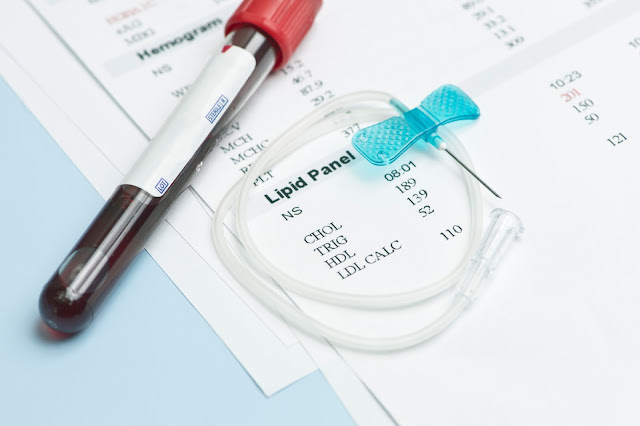Lipid Testing Are One Of The Most Common Laboratory Tests Used To Determine Cholesterol Level In Blood
 |
| Lipid Testing |
Lipid
Testing is
a blood test used to analyze the levels of cholesterol and triglycerides in the
blood. This blood testing is a way to see what cholesterol levels are in the
blood. High cholesterol levels can increase the risk of heart disease and other
health problems. Lipid testing can help doctors diagnose, screen, and monitor
health conditions. Doctors also use them as a way to determine the best
treatment plan for patients who have high cholesterol.
Lipids are a group of fat-like
compounds that play many important roles in the body. When too much of these
substances build up in the blood, they can cause problems like heart disease or
stroke.
Cholesterol and triglycerides are the
two main types of lipids that blood contains. A Lipid
Testing measures
these and other lipids to assess the risk of developing cardiovascular disease
or other conditions. A lipid test measures several different types of fatty
substances in the body. These include fats, cholesterol, and triglycerides. It
can also help the doctor to diagnose or monitor medical conditions like
diabetes or a family history of high cholesterol.
The blood sample for a lipid test can
be drawn using a needle or with a finger prick at the doctor's office. The
needle usually causes a mild sting, while a finger prick can only require a
drop of blood to be collected from the skin. A lipid panel includes a number of
measurements that evaluate the total cholesterol, LDL (low-density lipoprotein)
cholesterol, HDL (high-density lipoprotein) cholesterol, and triglycerides.
Lipid panels are one of the most common laboratory tests ordered based on
clinical practice guidelines that recommend their routine use in primary and
secondary prevention of coronary heart disease. These tests also serve as an
early diagnostic tool for individuals who have a family history of cardiac
disease or other cardiovascular conditions.



Comments
Post a Comment